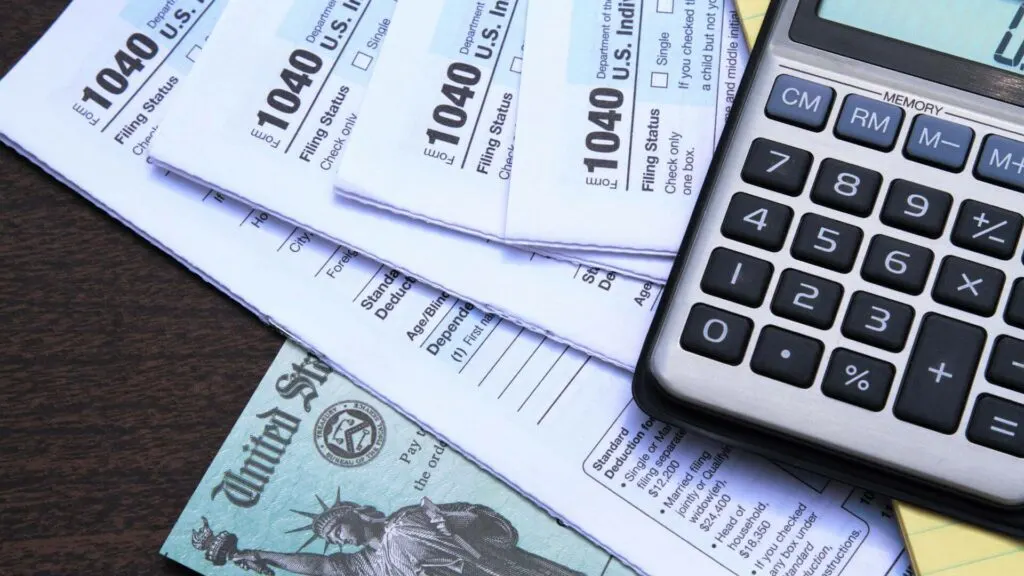Tax compliance is a critical responsibility for every individual and business. However, the complexity of tax laws and reporting requirements can sometimes lead to unintentional errors or omissions. For those who find themselves in such a situation, the Internal Revenue Service (IRS) offers amnesty programs as a way to come forward and rectify the issues.
In this blog, we will explore the essential information you should know about IRS amnesty programs. From eligibility and benefits to the types of programs available, understanding these aspects can be crucial for taxpayers seeking to resolve their tax issues and achieve peace of mind.

What Are IRS Amnesty Programs?
IRS amnesty programs are initiatives offered by the Internal Revenue Service (IRS) to encourage non-compliant taxpayers to come forward voluntarily and rectify their tax issues.
These programs are designed to allow taxpayers to disclose unreported income, undisclosed offshore accounts, or other tax-related discrepancies without facing severe penalties or criminal prosecution. The main objective of IRS taxpayer amnesty programs is to bring non-compliant taxpayers back into compliance while fostering a sense of cooperation and transparency. By participating in these programs, taxpayers can address their tax issues, correct past mistakes, and achieve peace of mind, knowing they are taking proactive steps toward meeting their tax obligations and avoiding potential legal consequences.
Eligibility and Qualifications
To participate in IRS amnesty programs, taxpayers must meet specific eligibility requirements. These criteria may vary depending on the type of program and the taxpayer’s individual circumstances. Generally, eligible taxpayers must voluntarily come forward to disclose the non-compliance, accuracy, and timeliness of the disclosure. The IRS considers factors such as the taxpayer’s compliance history, the amount of unreported income, and the taxpayer’s efforts to cooperate during the voluntary disclosure process.

Benefits of IRS Amnesty Programs
Participating in IRS amnesty programs offers several benefits for taxpayers. One significant advantage is the potential for reduced or waived penalties. Under certain amnesty programs, taxpayers may receive relief from substantial penalties that could otherwise be imposed for non-compliance. Additionally, taxpayers who come forward voluntarily through amnesty programs may avoid criminal prosecution, which is a significant relief for those who fear potential legal consequences.
Types of IRS Amnesty Programs
The IRS offers various types of amnesty programs tailored to different situations. Two common programs are the Offshore Voluntary Disclosure Program (OVDP) and the Streamlined Filing Compliance Procedures. The OVDP is designed for taxpayers with undisclosed offshore accounts, while the Streamlined Filing Compliance Procedures are intended for non-willful taxpayers who have failed to report foreign assets or income. Each program has its unique features and requirements, making it essential for taxpayers to understand which program suits their specific circumstances.

How to Apply for IRS Amnesty Programs
Applying for IRS amnesty programs requires careful preparation and attention to detail. Taxpayers must complete specific forms and provide necessary documentation during the application process. Seeking professional tax advice and assistance is highly recommended to ensure that the voluntary disclosure is accurate and complete. Tax professionals can guide taxpayers through the application process, ensuring compliance with IRS guidelines and maximizing the chances of a successful outcome.
Risks of Non-Participation
Failing to participate in IRS amnesty programs can expose taxpayers to significant risks. Non-compliance with tax laws may lead to IRS audits, substantial penalties, and potential criminal charges in severe cases. By not addressing tax issues through amnesty programs, taxpayers may inadvertently face more severe consequences down the line. Procrastination in resolving tax issues can compound the problems and increase the overall financial and legal burden.
Success Stories and Testimonials
Numerous taxpayers have benefited from participating in IRS amnesty programs. Success stories highlight the positive outcomes of voluntary disclosure, including reduced penalties, criminal prosecution avoidance, and a fresh start toward tax compliance. Testimonials from tax professionals and individuals who have successfully resolved their tax issues through amnesty programs can offer reassurance and inspiration for those considering voluntary disclosure.
Important Considerations and Limitations
While IRS amnesty programs provide an avenue for resolving tax issues, it’s essential to be aware of potential considerations and limitations. Taxpayers should carefully assess their eligibility and consult with tax professionals to determine the most appropriate program for their situation. Some programs may have specific limitations, and not all taxpayers may qualify for a particular program. Understanding these aspects will help taxpayers navigate the process effectively.

IRS amnesty programs offer a lifeline for taxpayers with undisclosed tax issues, providing an opportunity to rectify non-compliance and achieve peace of mind. By understanding the eligibility criteria, benefits, and types of programs available, taxpayers can make informed decisions about participating in these initiatives. Seeking professional tax advice and guidance is essential to ensure that the voluntary disclosure is accurate and complete.
Resolving tax issues through IRS amnesty programs not only leads to compliance but also allows taxpayers to move forward with confidence and a renewed commitment to meeting their tax obligations. Participating in IRS amnesty programs is a proactive step towards resolving tax issues and avoiding potential penalties, ultimately contributing to a more compliant and financially secure future.

Jessi is the creative mind behind The Coffee Mom, a popular blog that combines parenting advice, travel tips, and a love for all things Disney. As a trusted Disney influencer and passionate storyteller, Jessi’s authentic insights and relatable content resonate with readers worldwide.

The Child Tax Credit Payments: Why They Should Be Made Permanent
Monday 7th of August 2023
[…] conclusion, making the expanded Child Tax Credit permanent is essential for children and their families across America to continue benefiting […]